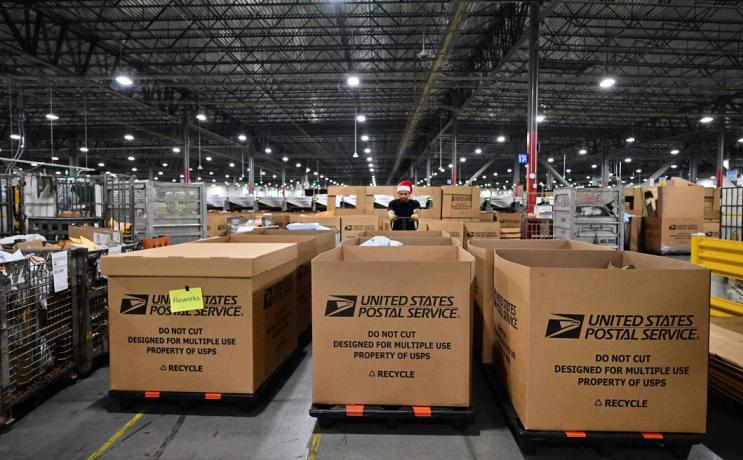
The US tariff measures against China have turned again, and the US will temporarily allow Chinese small parcels to continue to enjoy duty-free treatment, leaving a short buffer period for Chinese cross-border e-commerce companies such as Temu and Xiyin.
According to Bloomberg and Agence France-Presse, US President Donald Trump signed an executive order on Friday (February 7) that will temporarily maintain the duty-free treatment enjoyed by low-priced Chinese parcels until "a sound and efficient system is established to fully collect tariffs".
Trump signed an executive order on February 1, local time, announcing a 10% tariff on all Chinese imports from February 4, while repealing the "de minimis exception".
Under this system, goods worth less than $800 enter the United States without customs inspections or taxes.
Chinese cross-border e-commerce companies such as Temu, Xiyin and Alibaba's AliExpress have used this mechanism in the past to sell low-cost products to US consumers and quickly rise in the US market.
The general analysis believes that the withdrawal of the minimum exemption mechanism will deal a heavy blow to these cross-border e-commerce.
However, the withdrawal of the minimum exemption mechanism also means that U.S. customs officials must carefully inspect every package that enters the country, placing a significant burden on customs and postal services.
According to U.S. Customs and Border Protection, the number of packages applying for a minimum exemption from tax treatment has skyrocketed from 139 million in fiscal year 2015 to nearly 1.4 billion in fiscal year 2024.
In a statement, the Postal Service said it is currently working with U.S. Customs and Border Protection to establish a new mechanism for efficient collection of tariffs on China "to ensure minimal impact on package delivery."
But Reuters reported that the US Postal Service's erratic move has caused a huge backlog in customs clearance at New York's John F. Kennedy International Airport (JFK), even affecting packages that have already paid duties.
"If you're in the Global e-commerce business, Tuesday through Friday is a pretty exciting day," said John Losin, CEO of e-commerce and global supply chain firm Cirrus Global Advisors.
Neil van der Wo, chief air freight officer at Xeneta, a freight pricing platform, said Xiyan and Temu together move about 9,000 metric tons of cargo a day to the United States, equivalent to 88 fully loaded Boeing 777 freighters. "It is unrealistic to suddenly impose a ban on such a large volume of air transport, so the suspension of the executive order on minimum exemptions is not surprising."

Amidst the global wave of technological transformation, artificial intelligence (AI) has become a key focus of competition among major tech giants.
Amidst the global wave of technological transformation, art…
In January 2026, the remarks by US Treasury Secretary Besse…
Less than three weeks into 2026, transatlantic trade relati…
On January 17, 2026, the Trump administration, under the pr…
When Musk set the goal of achieving a launch frequency of m…
A week after the largest nationwide protests in years, the …